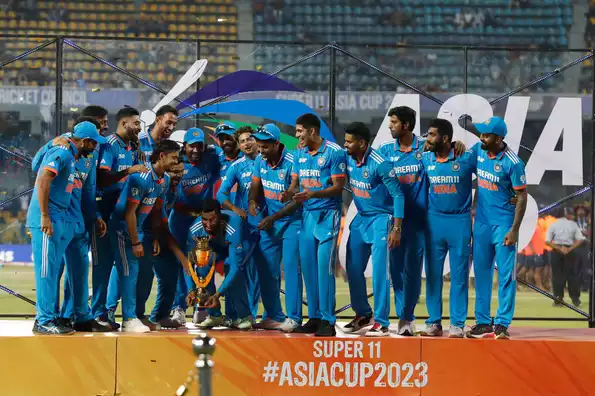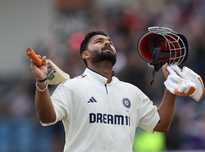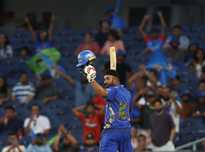The Asia Cup tournament may be on track after a period of uncertainty. While definitive conclusions remain premature, a renewed sense of optimism surrounds the continental championship, signaling a potential shift from previous tensions between India and Pakistan.

While concrete details are pending, a formal decision is anticipated next week. The Asian Cricket Council (ACC) aims to release the schedule for the six-team tournament in early July, coinciding with a planned meeting.
The ACC is reportedly aiming for a September start, targeting September 10 as a potential launch date for the T20 format tournament. Participating teams are expected to include:
Promotional activities are already underway.
The UAE is currently favored to host the tournament. Discussions are also considering a hybrid format. While India is the designated host, ACC regulations stipulate a neutral venue for Asia Cup tournaments hosted by either India or Pakistan.
Uncertainty clouded the tournament following an April terror attack. Subsequent events, including India's Operation Sindoor against Pakistan in May, intensified doubts. Calls for India to boycott Pakistan in multilateral events grew. Bilateral cricket between the two nations remains suspended. Discussions regarding a potential boycott by India in global events were rumored for the upcoming ICC meeting.
Recent developments suggest a potential shift. The International Cricket Council (ICC) released schedules for the Women's ODI World Cup (India and Sri Lanka) and the Women's T20 World Cup (England). India and Pakistan are slated to compete in both tournaments, on October 5 in Colombo and June 14 at Edgbaston, respectively.
Although the BCCI, ACC, and ICC officials have remained silent publicly, cricketing ties between the rivals appear set to continue, at least in global events. These matches are significant revenue streams for global cricket. While India and the Board of Control for Cricket in India (BCCI) may not depend heavily on revenue from these high-profile encounters, governing bodies like the ICC and ACC, along with their member boards, do.
Newer articles
Older articles
 Aditya Narayan Calls for Entertainment Industry Reform, Citing Personal Burnout Struggle
Aditya Narayan Calls for Entertainment Industry Reform, Citing Personal Burnout Struggle
 Rishabh Pant's "Game-Changing" Innings Draw Adam Gilchrist Comparisons from Greg Chappell
Rishabh Pant's "Game-Changing" Innings Draw Adam Gilchrist Comparisons from Greg Chappell
 Gavaskar Urges India to Replace Thakur with Yadav for Second Test Against England
Gavaskar Urges India to Replace Thakur with Yadav for Second Test Against England
 Greg Chappell: Rishabh Pant Redefining Cricket with Revolutionary Batting Style
Greg Chappell: Rishabh Pant Redefining Cricket with Revolutionary Batting Style
 Wimbledon 2025: Streaming Guide for India & US Fans - Dates, Prize Money, and How to Watch Online
Wimbledon 2025: Streaming Guide for India & US Fans - Dates, Prize Money, and How to Watch Online
 Nitish Rana Set for Delhi Comeback After Disappointing Uttar Pradesh Spell
Nitish Rana Set for Delhi Comeback After Disappointing Uttar Pradesh Spell
 Google Maps Enhances Navigation Accuracy with Fused Orientation Provider API Update
Google Maps Enhances Navigation Accuracy with Fused Orientation Provider API Update
 Dhillon's Explosive Batting Display Propels Him to MI New York Spotlight
Dhillon's Explosive Batting Display Propels Him to MI New York Spotlight
 Moeen Ali's Legacy: 'Uncle Munir' Continues Family Cricket Dynasty in Birmingham, One Grandchild at a Time
Moeen Ali's Legacy: 'Uncle Munir' Continues Family Cricket Dynasty in Birmingham, One Grandchild at a Time
 X Crackdown: Platform Bans Half a Million Indian Accounts Over Policy Violations
X Crackdown: Platform Bans Half a Million Indian Accounts Over Policy Violations